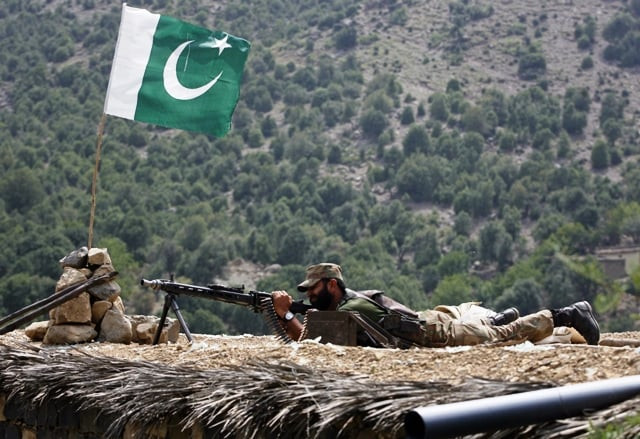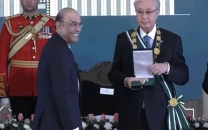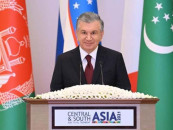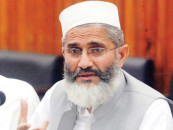Why the army will have to go into North Waziristan
Entire American establishment believes Haqqani network exports terror to Afghan, needs to be crushed by Pakistan Army.

Shortly before leaving Kabul, General David Petraeus, the outgoing chief commander of the US-Isaf troops, referred to Pakistan Army’s long-overdue operation in Kurram and the trans-border movement by Afghan militants and their TTP affiliates as “North Waziristan in Reverse.”
He tossed the phrase in the presence of other Isaf representatives, suggesting that North Waziristan would have to be the Pakistan Army’s next destination – a place that the US abhors due to the presence of an al Qaeda-inspired militant conglomerate, presumably protected by the Haqqani network. The entire American establishment believes this network exports terror to the Afghan soil and thus needs to be crushed by the Pakistan Army – something that the latter has thus far resisted. American exhortations in this regard have been shunned using multiple, and at times incomprehensible, reasons embedded in issues such as ‘capacity’ and ‘social milieu’.
But, over 10 weeks since the surprise termination of Osama bin Laden and relations with the United States appearing to have hit rock-bottom, the narrative on North Waziristan seems to be changing. The situation in Kurram and the cross-border attacks on security posts in Bajaur and Dir in the last two weeks necessitated a “geographical military activity” in North Waziristan.
Highly-placed military officials now tell us that the recently-launched operation in the embattled and isolated Kurram Agency was a move to “plug all the holes” before taking on militants of all hue holed up in North Waziristan.
The initial target of the “geographical operation” is the area around the mountains that separate North and South Waziristan. Initial targets include Shawal and Makeen, where the Tehreek-i-Taliban Pakistan (TTP), the avowed enemy number one of the state of Pakistan, took refuge after the army dislocated them from the Mehsud regions of Laddha, Makeen and Sararogha in October/November 2009. Other obvious targets include Miramshah, the administrative headquarters of North Waziristan, Dattakhel and particularly Mirali, considered to be a bee-hive housing the TTP, Islamic Movement of Uzbekistan and Lashkar-e-Jhangvi, usually referred to as the Punjabi Taliban.
Apparently opposed to a full-scale military offensive in North Waziristan, and prisoner of a bloated ego, the military, under the burden of circumstances, has opted to call its activity in Shawal “geographical operation”, rather than a full-scale or even a selective operation.
But let us face reality: Whatever spin and name, the American pressure and the countrywide censure of the military in the aftermath of the Bin Laden affair, has finally done the trick. The much-awaited military movement against radical, al Qaeda-linked militants is now under way – albeit without a major declaration to the effect.
However selective, the military is now gradually on the move in North Waziristan to hunt the enemy, and this deserves appreciation rather than scorn and scepticism. But, based on the ground realities in North Waziristan, which adjoins the entire greater Paktia region – home to the Haqqanis’ Zadran tribe – the belated crackdown also requires a national consensus, plenty of patience and understanding for several reasons.
Firstly, while the decision to embark on a selective offensive against al Qaeda marks a clear attempt to mend the fractured relationship with the United States, it, hopefully, also underscores a new realism within the military establishment: The refusal to crackdown on all Arab-African, Afghan and Pakistani affiliates of the Haqqani network – in fact the network itself – holds no water any more. The circumstances surrounding Pakistan simply demand a definite move against all those elements that are – directly or otherwise – a source of attacks on the interests of the state of Pakistan.
Secondly, any direct assault on the Haqqanis and affiliates in North Waziristan means stoking a bee-hive of all those who are already filled with a sense of betrayal by the erstwhile security institutions, and who, by implication, have become foot-soldiers for al Qaeda and are more than eager to peddle and promote the kind of terrorism that Bin Laden and Ayman Al Zawahiri stand for.
Any assault – or even limited confrontation with some or all of these militant outfits – will almost certainly trigger a reaction in mainland Pakistan - meaning cities such as Peshawar, Mardan, some southern districts of Khyber-Pakhtunkhwa such as DI Khan and Kohat, as well as Rawalpindi and Lahore. By implication, we should all anticipate, and be ready for, the kind of violence that Pakistanis suffered in the aftermath of the Lal Masjid operation in 2007, or the terror attacks in the last half of 2009. Thirdly, and this point flows from the second element which had held the army back from a crackdown in North Waziristan, the ensuing violence is likely to herald a new wave of uncertainty and instability across the country. The military establishment was already unsure, given the wobbly political landscape, whether the civilian government would be able to absorb shockwaves produced by an al Qaeda-inspired onslaught.
Security agencies fear that supporters of al Qaeda and its Pakistani auxiliaries might set off a new wave of terror if their mentors in North Waziristan were attacked.
Fourthly, the Haqqanis enjoy the reputation of being “strategic assets” of the Pakistani military establishment.
Fifth, a peace accord, signed on February 17, 2008, still holds true for North Waziristan, where people like Hafiz Gul Bahadur and Maulvi Sadiq Noor – both close friends of the Haqqanis – act as guarantors. Any unilateral action by the army would amount to a breach and thus might even result in adverse reactions by Bahadur and Noor.
As a whole, the advance on North Waziristan is fraught with risks. But what is obvious is that, sooner or later, Pakistan will have to face up to them for its long-term interest. History suggests that short-term pains must be taken to preempt long-term socio-political disasters. The antidote for the conglomerate of religiously-driven militants is a conclusive official campaign – free of fear or favour. Therein lies the long-term salvation of Pakistan and this is why a military advance in North Waziristan is inevitable – regardless of how the security establishment characterises it.
Published in The Express Tribune, July 15th, 2011.



















COMMENTS
Comments are moderated and generally will be posted if they are on-topic and not abusive.
For more information, please see our Comments FAQ